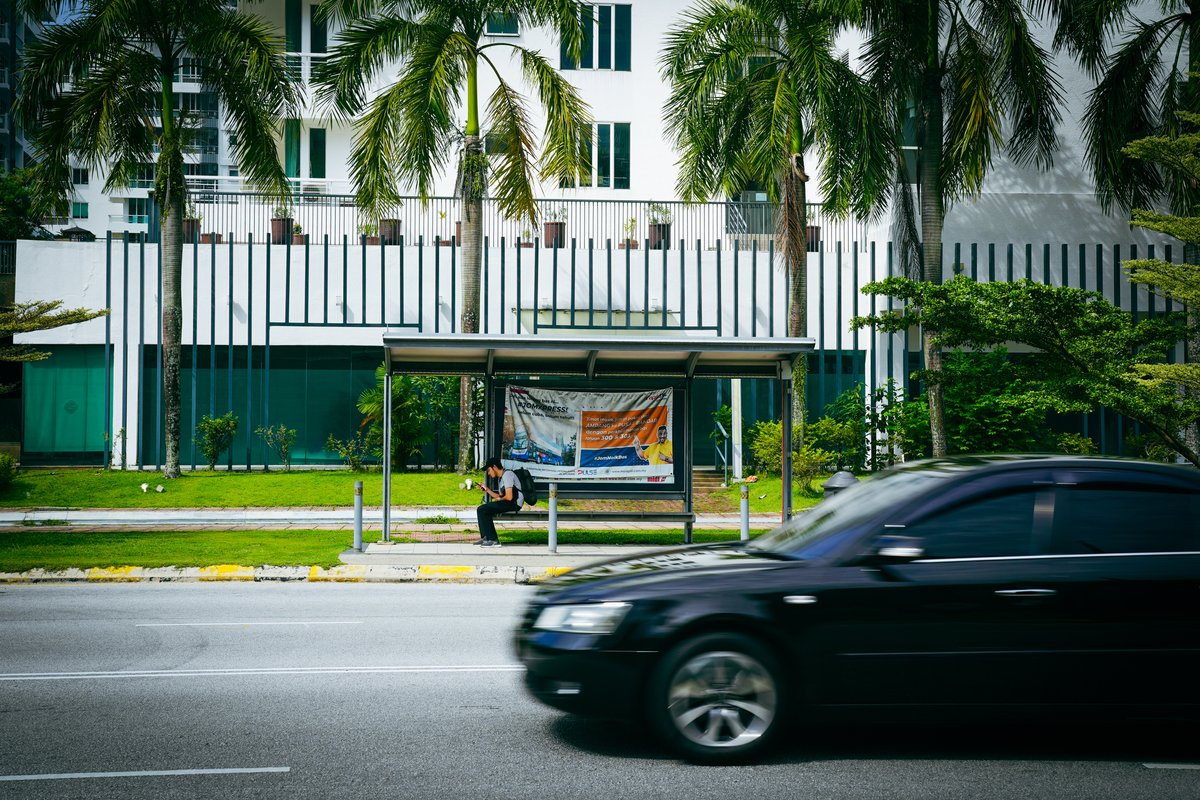
甘美な多様性の裏側 The sweet side of diversity
今週もクアラルンプールにいます。
This week, I am in Kuala Lumpur.
クアラルンプールの活気あふれる街並みを歩いていると、マレーシアの多様性が目に飛び込んできます。マレー系、中華系、インド系を中心とした多民族国家であるマレーシアは、その多様性が食文化にも反映されています。各民族の伝統料理が共存し、時には融合しながら、独特の食文化を形成しています。
Walking through the vibrant streets of Kuala Lumpur, the diversity of Malaysia is immediately apparent. As a multi-ethnic nation primarily composed of Malays, Chinese, and Indians, Malaysia's diversity is reflected in its culinary culture. The traditional dishes of each ethnic group coexist and sometimes blend, creating a unique food culture.


マレー系料理は、ココナッツミルクやスパイスを豊富に使用し、しばしば揚げ物が中心となります。ナシレマやレンダンなどの料理は、豊かな風味と共に高カロリーであることが特徴です。一方、中華系料理は比較的あっさりとしており、蒸し料理や炒め物が多く見られます。インド系料理は、カレーやタンドリー料理など、スパイシーで味わい深いものがメインです。
Malay cuisine uses plenty of coconut milk and spices, often centering around fried foods. Dishes like nasi lemak and rendang are rich in flavor and high in calories. On the other hand, Chinese cuisine is relatively light, with many steamed and stir-fried dishes. Indian cuisine features spicy and flavorful dishes like curries and tandoori.
この多様な食文化は、マレーシアの魅力の一つである反面、健康上の課題も生み出しています。特に顕著なのが、肥満問題です。マレーシアの肥満率は、アジアの中でもブルネイに次いで2番目に高くなっています。街を歩いていると、特にマレー系の方々の中でぽっちゃりとした体型の人が目立つように感じます。統計によると、男性よりも女性の方が肥満率が高いようですが、これは街中での僕の印象とも一致するような気がします。
This diverse culinary culture is one of Malaysia's attractions, but it also brings health challenges, notably obesity. Malaysia's obesity rate is the second highest in Asia, after Brunei. Walking through the streets, one notices many chubby individuals, especially among the Malays. Statistics show that the obesity rate is higher among women than men, which aligns with my observations.

肥満問題の背景には、食生活、特に砂糖の過剰摂取があるでしょう。マレーシアの砂糖消費量は、アジアの中で最も多く、世界的に見ても突出しています。2020年の米農務省と世界銀行の統計によると、マレーシアの1人当たりの年間砂糖消費量は61キログラムと、世界平均の23キログラムの2.7倍にも達します。これは米国の消費量と比べても倍近い水準であり、もはや国家レベルの問題とも言えるでしょう。
The underlying issue of obesity lies in dietary habits, particularly excessive sugar consumption. Malaysia has the highest sugar consumption in Asia and is among the top globally. According to 2020 statistics from the U.S. Department of Agriculture and the World Bank, Malaysia's per capita annual sugar consumption is 61 kilograms, 2.7 times the world average of 23 kilograms. This is nearly double the consumption in the United States, indicating a national-level problem.
この過剰な砂糖摂取は、単に肥満だけでなく、様々な健康問題につながります。例えば、糖尿病の発症リスクが高まることはもちろんのこと、それ以外にも心臓病や高血圧などの生活習慣病のリスクも上昇します。
This excessive sugar intake leads to various health problems, not just obesity. For instance, it increases the risk of developing diabetes, as well as other lifestyle diseases like heart disease and hypertension.

さらに、砂糖の過剰摂取は皮膚の健康にも影響を与えます。体内で大量の糖が処理されると、サイトカインと呼ばれる炎症性化学物質が放出されます。これらの物質が大量に放出されると、赤み、むくみ、ニキビなどの皮膚トラブルを引き起こす可能性があります。そのため、街中でよく見かけるのが、ニキビケアのクリニックの広告やスキンケア商品の宣伝です。
Moreover, excessive sugar intake affects skin health. When the body processes large amounts of sugar, it releases inflammatory chemicals called cytokines. High levels of these chemicals can cause skin issues like redness, swelling, and acne. This is why advertisements for acne treatment clinics and skincare products are common in the city.
しかし、これらの商品やサービスは、問題に対する「表面的」な解決策にすぎません。肌トラブルの根本的な原因に取り組まずに、外側からのアプローチだけでは長期的な改善は難しいでしょう。これは肌トラブルに限らず、多くの健康問題に当てはまることです。
However, these products and services are only "surface-level" solutions to the problem. Without addressing the root causes of skin issues, external approaches alone are unlikely to bring long-term improvements. This applies not only to skin problems but to many health issues as well.


マレーシア政府も、この問題の深刻さを認識し、対策を講じようとしています。例えば、24時間営業のレストランの営業時間短縮が提案されていますが、住民の反対も根強く、即座に実行に移すのは難しい状況です。特に、マレーシアの国民的飲み物であるKopi Tarikなど、コンデンスミルク入りの甘い飲み物は、日常生活に深く根付いています。これらの飲み物は、単に嗜好品というだけでなく、社交の場での重要な要素となっており、文化的な側面も持っているという印象を受けます。また、酒を禁忌とするイスラム教の影響も少なからずあるでしょう。
The Malaysian government recognizes the severity of this issue and is attempting to implement measures. For example, shortening the operating hours of 24-hour restaurants has been proposed, but strong opposition from residents makes immediate implementation difficult. Especially popular are sweet drinks with condensed milk, like the national beverage Kopi Tarik, which are deeply ingrained in daily life. These drinks are not just a preference but an important social element, carrying cultural significance. Additionally, the influence of Islam, which prohibits alcohol, also plays a role.

AIによる創薬や個別化医療が注目される現代ですが、これからの社会では、単なる「治療」よりも「予防」がより重要性を増してくると僕は思います。日々の食事や生活習慣を見直し、健康的な選択をすることが、長期的には最も効果的な「医療」となることは誰の目にも明らかなことでしょう。もしかしたら、健康なライフスタイルを考えて、宗教もよりリキッドなものになっていくかもしれません。
In today's world, where AI-driven drug discovery and personalized medicine are gaining attention, I believe that "prevention" will become increasingly important in society, rather than mere "treatment." Reviewing daily diets and lifestyle habits and making healthy choices is clearly the most effective "medicine" in the long term. Perhaps, considering a healthy lifestyle, even religion might become more fluid.
多様性を尊重しつつ、健康的な未来を築いていく。それがマレーシアの、そして私たち一人一人の挑戦なのではないかと思う夏のクアラルンプールです。
Building a healthy future while respecting diversity is the challenge for Malaysia and each of us. This is my thought in the summer of Kuala Lumpur.


この記事が気に入ったらサポートをしてみませんか?
